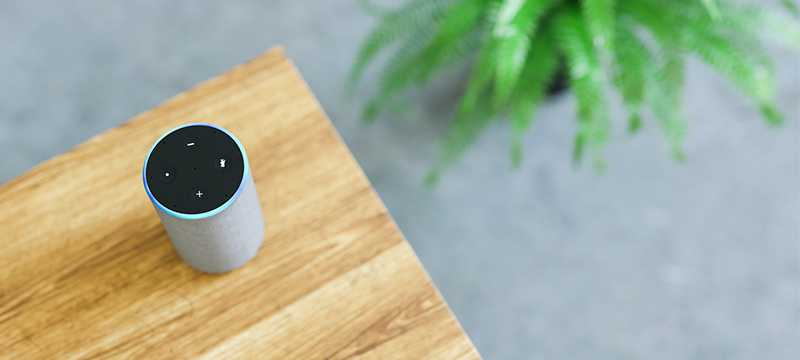In the first of a series of voice technology articles, we’ll explore why 2019 will be the year voice technology goes mainstream.

Large potential audience
Sales of smart speakers continue to accelerate, with Amazon reportedly selling 1,000 Echo Dot devices every minute during Black Friday, and Google also selling millions of Home devices. Retailers including John Lewis reported brisk sales of both devices.
Expect to see millions of devices enter UK homes over the next 12 months. Research company Canalys predict that 56 million smart speakers will be sold globally in 2018, indicating the technology has rapidly moved from a niche interest for early adopters to a mass audience.
Low cost
As smartphone sales continue to decline, the relatively low cost of entry level smart speakers make them an attractive option. Many homes now have multiple smart speakers in different rooms of the house to assist with daily tasks and home automation.
No interface
Being free from the constraints of a physical interface makes voice accessible to a wider range of people, and paves the way for ubiquitous computing which we’ll explore in more depth in a future post.
Low barriers to entry
Voice technology is great for developers and creatives, as engaging conversational content can be produced relatively quickly and easily. Progressive companies will reap the benefits of being first to enter this emerging sector.
Flexible
Alexa technology is now included in everything from speakers to microwave ovens and sunglasses. Likewise Google voice technology is accessible to anyone with an Apple or Android smartphone via the Assistant app.